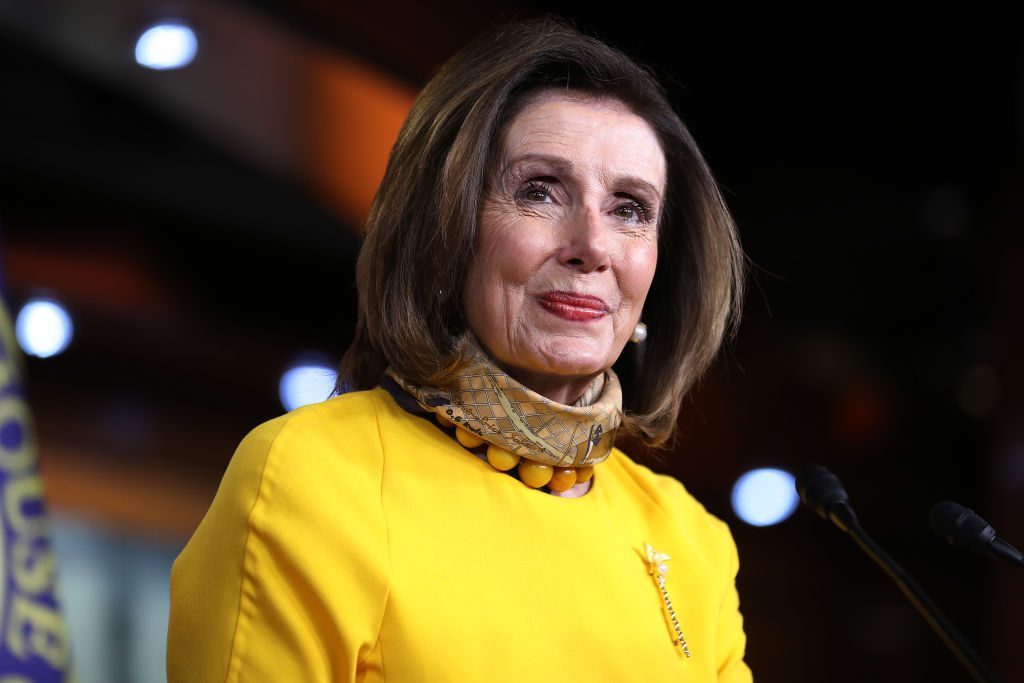A Novel Interpretation of Matthew 25

Nancy Pelosi went on MSNBC’s Morning Joe Tuesday to discuss Archbishop Salvatore Cordelione’s barring her from receiving Holy Communion in his diocese.
Host Joe Scarborough opened the segment by calling the archbishop’s decision “disconcerting.” He noted that “Jesus never once mentioned [abortion] in the Gospels” and instead “told His disciples in Matthew 25 that we would be welcomed into the kingdom of heaven if we gave water to the thirsty, fed the hungry, clothed the poor, and brought hope to the hopeless.” Apparently, unborn children do not qualify as “the least of these.”
Pelosi thanked Scarborough “for referencing the Gospel of Matthew, which is sort of the agenda of the Church that is rejected by many who” otherwise “side with” the Church on abortion.
Chapter 25 of St. Matthew’s Gospel, to which Scarborough and Pelosi refer, contains the parable of the Last Judgement. In that parable, Christ separates the saved from the damned on the basis of their having fed the hungry, given drink to the thirsty, clothed the naked, welcomed the stranger, visited the sick and the prisoner, or not. It has traditionally been understood as an injunction for Christians to feed the hungry, give drink to the thirst, clothe the naked, welcome the stranger, and visit the sick and imprisoned. A more novel interpretation of this passage was described by former Attorney General Bill Barr at the University of Notre Dame in 2019:
The new secular religion teaches macro-morality. One’s morality is not gauged by their private conduct, but rather their commitment to political causes and collective action to address various social problems. This system allows us not to worry so much about the stretchers on our own private lives, because we can find salvation on the picket line. We can signal our finely-tuned moral sensibilities by participating in demonstrations on this cause or on that.
Something happened recently that crystallized this difference between them — these competing moral systems. I was attending Mass at a parish I do not usually attend in Washington D.C. And at the end of Mass, the chairman of the social-justice committee got up to give his report to the parish. And he pointed to the growing homeless problem in D.C., and explained that more mobile soup kitchens were needed to feed them. This being a Catholic church, I expected him to call for volunteers to go out and provide for this need — as volunteers. But instead, he recounted all the visits that the committee members had made to the D.C. government to lobby for higher taxes and more spending to fund mobile soup kitchens.
In this understanding of the parable, feeding the hungry does not require a Christian to actually feed the hungry himself. Instead, the Christian can vote for politicians who pledge to raise taxes on strangers, the receipts from which will be used to fund programs administered by other strangers. This allows the Christian to never come in contact with the hungry or sacrifice anything of substance to ensure the hungry are fed. It reduces living the Gospel to a crude exercise in political science.
This is not to say that Matthew 25 should have no bearing on a Christian’s politics. It should. It is only to say that disagreeing with Nancy Pelosi about the merits of the Head Start program does not, of itself, prove that a person will be counted among the damned when the sheep are divided from the goats.
Speaking of the general judgment, Pelosi added later in the segment that overruling Roe would be “very dangerous in the lives of so many of the American people. And, again, not consistent with the Gospel of Matthew.” Does she think that argument will check out on the Day of Wrath?
Comments